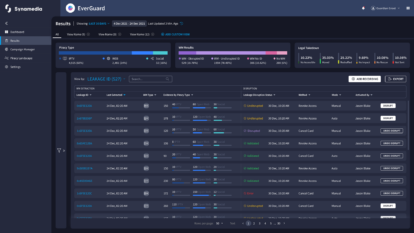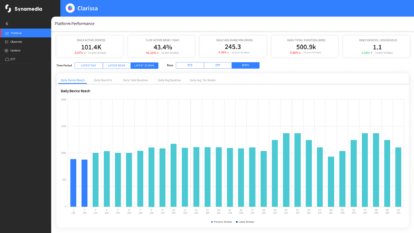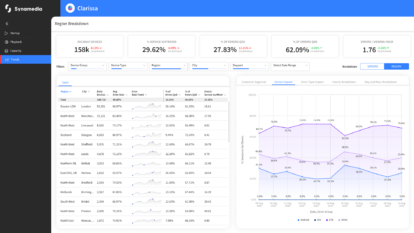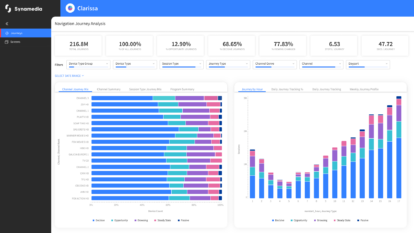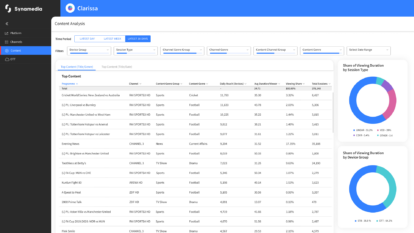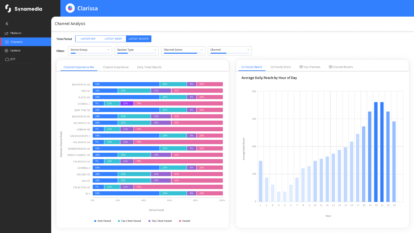Press Releases

yes selects Synamedia for distribution watermarking on streaming services
Read more
beIN MEDIA GROUP teams up with Synamedia for world class user experience
Read more
Vodafone gets to the heart of its viewing data with Synamedia Clarissa
Read more
Cellnex selects Synamedia to support RTVE’s broadcasting across Spain
Read more
Synamedia brings its winning lineup of cloud, streaming and distribution technologies to NAB 2023
Read more
Synamedia launches Quortex Link pay-as-you-use SaaS platform for dynamic video distribution
Read more
yes selects Synamedia and 3SS for enhanced smart TV user experience
Read more
Türk Telekom speeds video processing with Synamedia compression
Read more
castLabs announces its collaboration with Telia replacing their traditional CAS with Widevine CAS
Read more
beIN teams up with Cognacq-Jay Image and Synamedia to launch a 4K UHD World Cup channel in the cloud
Read more
No laughing matter: Synamedia finds comedy is the most pirated genre
Read more
Cellcom scores World Cup low latency streaming win with Synamedia
Read more
SportsMax deploys Synamedia Vivid PowerVu Workflow-as-a-Service in record time for live sports programming in the cloud
Read more
Astro Malaysia goes live with Synamedia Clarissa for business insights clarity
Read more
Red Bee Media selects Synamedia Quortex for disaster recovery to cut cloud costs
Read more
Synamedia sets the pace of change to SaaS at IBC 2022
Read more
Synamedia acquires Quortex to add just-in-time live video streaming and accelerate its SaaS offerings
Read more
Synamedia acquires Utelly to boost Synamedia Go’s content discovery capabilities
Read more
Synamedia taps Amazon Web Services for next phase of its VIVID portfolio evolution
Read more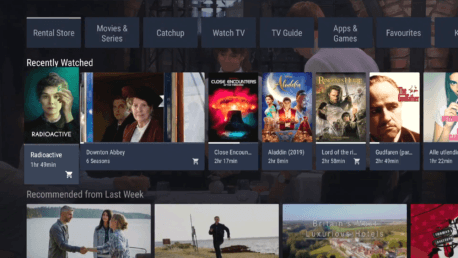
Allente breaks new ground with Synamedia’s SaaS security solutions for OTT
Read more
Expanded Synamedia Go takes Synamedia into the TV streaming fast lane
Read more
Synamedia to showcase SaaS-based solutions that empower the streaming era at NAB 2022
Read more
Synamedia brings intelligence to the CDN’s edge for unprecedented efficiency, agility, and scalability
Read more
Etisalat selects Synamedia and 3SS for Switch TV lean back experience
Read moreNews

Predictions from Synamedia for 2023
Read more
ACE Shuts Down Major Live Streaming Sports Sites and Settles with Operator
Read more
Breaking: Synamedia, DAZN and Media Distillery among VideoTech Innovation Awards winners
Read more
Synamedia: Cost-of-living crisis driving piracy
Read more
Greener Pastures: Greater Sustainability via Just-in time and On-demand Video Streaming
Read more
Reaction to Netflix ad tier
Read more
Growing the market and increasing the enjoyment of TV sports
Read more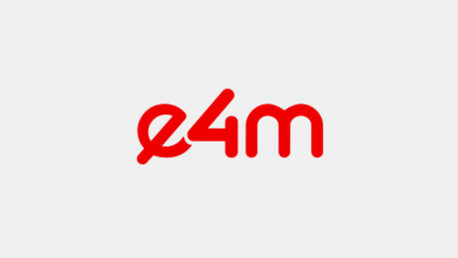
‘IPL media rights is a case study for the world to understand where OTT industry is going’
Read more
Synamedia swoops for Utelly to boost content discovery
Read more
Synamedia buys Utelly
Read more
Synamedia Introduces Complete Go Cloud Video Suite
Read more
Synamedia taps AWS for next phase of VIVID portfolio
Read more
Allente breaks new ground with Synamedia’s SaaS solutions for OTT
Read more
Synamedia To Present Its SaaS-Based Solutions At NAB 2022
Read more
NAB 2022: Synamedia breaks new ground with Allente, taps AWS for VIVID
Read more
NAB 2022: Synamedia aims for TV streaming fast lane with cloud video
Read more
Synamedia brings intelligence to the CDN’s edge at NAB 2022
Read more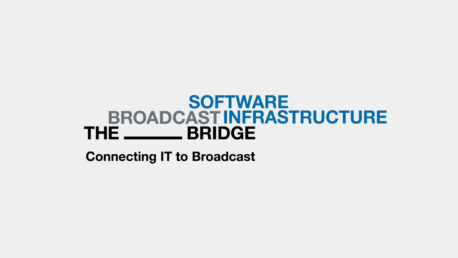
Rebuilding Robust Workflow In Cloud Key Theme At NAB
Read more
Industry players deploy edge apps using LiveEdge Compute
Read more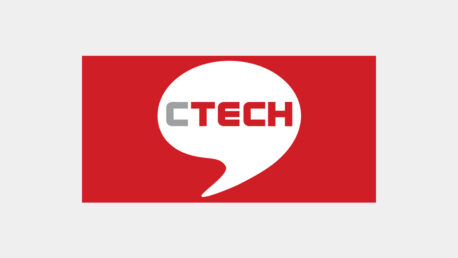
Content owners want a direct relationship with the consumers
Read more
“Optimisations on AWS Elastic Cache (Redis) Usage” International Journal of Future Computer and Communication
Read more
Synamedia CTO, Sports Security Director, Deliver 2022 Predictions
Read more
Synamedia vDCM Plays Role In D.C. Launch Of ATSC 3.0
Read more
